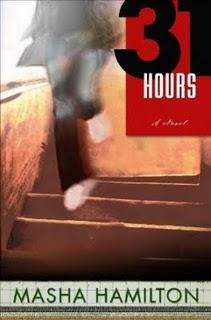31 Hours

Following the event, I promised myself I would never read "a 9/11 book," fiction or not. Having admitted that, I can't explain what exactly led me to almost eagerly pick up John Updike's Terrorist in the year it was published, save for the vague hope that this was a writer who could help make some sense out of a senseless situation. As long as I was breaking my vow, lifting the corner of Pandora's box long enough to peak in, I wanted assurance the hands of the author were skilled, strong hands - hands experienced enough to explain the unexplainable.
Ironically, it turned out Terrorist was abysmal, almost cartoonish in its depiction of the "kind of" person who willingly sacrifices his own life in an attempt to advance the cause of Muslim extremism. Instead of a moment of enlightenment, I received a disappointment so great it achieved the same effect I'd originally hoped for, failing to come anywhere near invoking the same degree of terror as 9/11 itself.
Having failed once makes it all the more surprising that, when offered dozens of choices, I actively chose to review Masha Hamilton's 31 Hours —a book with a very similar theme. Only this time, the premise hit much closer to home. Hamilton's novel is told through the lens of a close relationship between a mother and son, a relationship I know times two. The theoretical suddenly became personal.
The plot itself is simple. Thirty-one hours is both how long a mother has to reach her son—whom she knows to be in dire straits—and the length of time her son has to prepare himself to die. In this time frame each goes through eerily similar situations. First, the initial phase of realization: the mother (Carol) that something is terribly wrong and the son (Jonas) that what he'd worked for since training in Pakistan was imminent. Next, the preparation: the mother, in desperation, following all known leads and the son purifying himself, as he's been taught by his mentor. Finally, the act of magnetic repulsion, as the mother tries to reach her son in time, and the son she raised slips out of her hands.
Meanwhile, the other two major characters orbit, providing the context in which the rest of the story plays out. There is Vic, Jonas' neglected girlfriend, who is too caught up in her own ambition to become a dancer to be an effective deterrent, and Sonny, a homeless man with the preternatural ability to smell evil in a person, a character interesting in premise, though poorly executed through the author's inability to create believable dialogue.
The novel capitalizes on a post-9/11 world in which acts of brutality are a daily reality. It brings to the surface the terrifying realization some terrorists are homegrown, produced from the same soil as patriots, and hell-bent on bloodshed in order to right the balance of the world. Unfortunately for the reader, the book falters. A fast-paced thriller promising in its concept, in many ways it lacks in execution. 31 Hours hovers midway between mass market and literary fiction, unable to quite hit the literary mark due to its off-target attempts at a lyrical writing style, as well as passages of dialogue that clunk in the ear.
What Hamilton does achieve is edge-of-your-seat action in a book slim enough to be consumed in a day, taking the wait out of discovering the abrupt—and some would say breathtaking—denouement. Her premise is also a good one, coming at a now well-worn genre from a unique angle of the relationship between a mother and a child raised to know right, yet going terribly wrong.
31 Hours is not a great book. Nor is it the sort of book to perch near the top of the bestseller lists. Yet, it presents an original approach to a difficult subject and story threads that, though not always tied up satisfactorily, at least venture into new territory. And in these days of cookie-cutter bestsellers, sometimes that is enough.